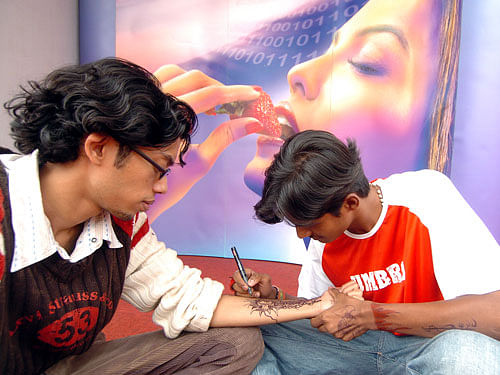
Frequent raids, heavy fines, even jail and secret work life are what professional tattoo artists regularly face in South Korea, a country where the art of injecting ink into the skin is illegal despite the growing popularity of the fashion statement.
"As it is illegal, we cannot put a sign on the door," said Kim Ki-bok, one of the most renowned tattoo artists in Seoul, at the entrance of his studio camouflaged as a residential flat on the fourth floor of an old building in downtown Hongdae, the cradle of new art and trends in the country
While they are legally listed as "unemployed", four tattoo artists have been working every day for 10 months at this tattoo parlour for long hours, with one eye on the client's skin and the other at a possible police raid.
South Korean laws consider tattoos a medical procedure that only qualified doctors in clinics and hospitals can perform, something which relegates real professionals in this field to the underground.
However, the South Korean National Assembly does not consider it a priority to legalise tattoos and for the moment the debate remains hung.
Kim, a member of the association "Tattooist", which functions as a trade union for such professionals, based their expectations of legalisation on the growing social acceptance of tattoos in the conservative South Korean society.
Interestingly, the person who has contributed most to the cause is 20-year-old Australian Daniel Snoeks, a star on South Korean television since he participated in "Non-Summit", a programme in which immigrants from various countries discuss different topics in Korean.
Daniel, whose hands and much of his body are tattooed, told Efe news agency that he wanted to use his fame to achieve the legalisation of tattoos in South Korea.
Daniel said that when he arrived in Seoul a year-and-a-half ago, the people on the subway would move away from him and comment how disgusting or scary his tattoos were but after his jump to fame everyone wanted to take his picture whenever he used public transport.
According to Kim, tattoos in South Korea traditionally were linked to the image of gangsters and bad guys, but today people, and especially youngsters, see them as something attractive and fashionable.